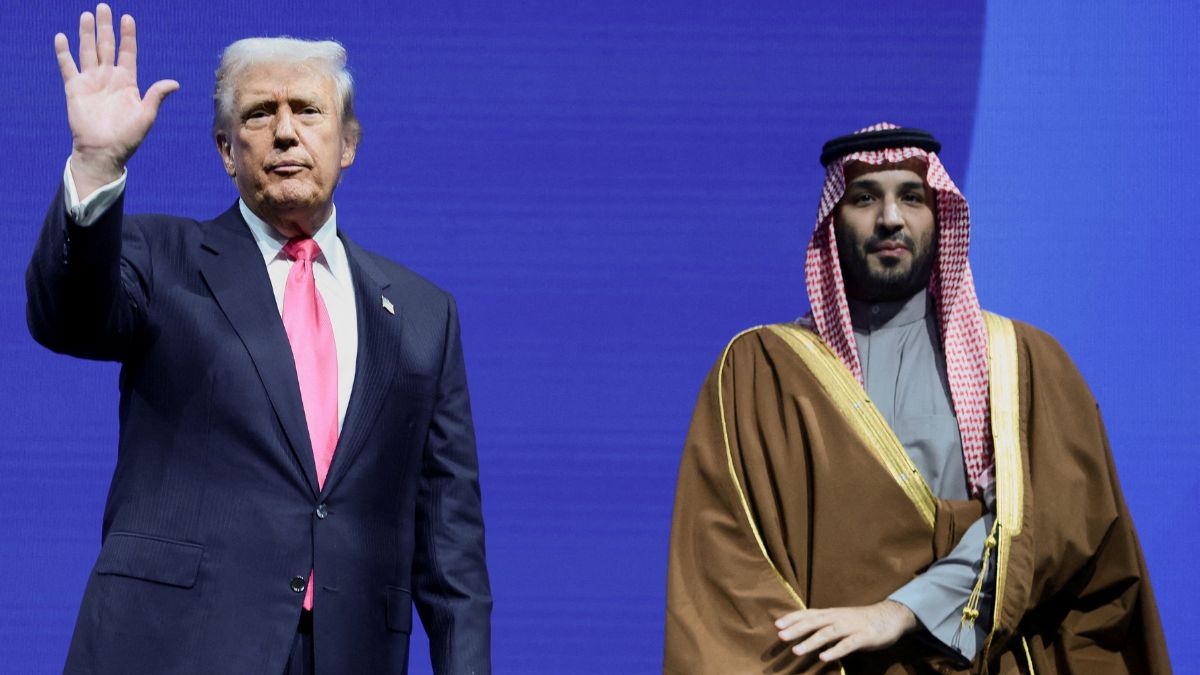During his visit to the United States, the crown prince of Saudi Arabia, Mohammed bin Salman , pledged to invest $1 trillion in Washington as he sat next to US President Donald Trump at the Oval Office . While the promise reflected the abundant wealth of the West Asian nation, it raises questions about whether the country’s sovereign fund has enough cash to fulfil the promise.
The kingdom’s vaunted Public Investment Fund (PIF), which Saudi Arabia has typically used to fulfil commitments like the one it made this week in Washington, is running low on cash as the country seeks new investment. That is largely because Prince Mohammed and his deputies have spent a vast portion of the nation’s bounty on projects that are currently in financial distress.
Sources close to the matter told The New York Times how the kingdom is struggling to reap the benefits of some of the projects it has invested heavily in. For instance, the Neom project, a vast would-be utopian region on the nation’s northern tip that was to feature robot workers, a ski resort and beaches, is currently confronted with major delays.
While the kingdom is still sitting on massive oil wealth , its ability to pump that resource, however, is heavily constricted by geopolitical agreements to curtail supply and a low price for crude overall. In light of these factors, the Saudis are currently running a budget deficit and taking on debt to fulfil Prince Mohammed’s domestic promises.
PIF: The major roadblock
While the Saudi Arabian PIF still holds $1 trillion in assets, a huge portion of its portfolio is tied up in hard-to-sell assets for which no public valuations are available. Hence, representatives of the body have begun telling international investors that it is all but unable to allocate any more money for the foreseeable future, sources told NYT.
A spokesman for the fund, Marwan Bakrali, said it had $60 billion in cash and similar financial instruments. He described it as “very liquid by regional standards.” Meanwhile, behind the scenes, the PIF team has been actively working to reconstruct its operations under the watchful eye of the crown prince.
Quick Reads
View AllThe Saudi prince has already fired the head of at least one of his more imperilled projects, Neom, two people briefed on the matter told NYT. The PIF team is also furiously slashing internal financial projections for various investments, including a string of luxury resorts on the Red Sea that sit mostly empty. It is also focusing its investments on private investments in artificial intelligence companies.
Is Saudi Arabia facing financial distress?
It is pertient to note that the world of sovereign wealth funds can be a staid place. The world’s largest, Norway’s $2 trillion Government Pension Fund Global, invests largely in publicly traded stocks. Some nations, like India, bar investigating outside the nation.
In Saudi Arabia, the PIF was created in 1971, funded by the Saudi government, to finance domestic companies such as nationally run banks and electric utilities. By 2015, it had accumulated $100 billion in assets, 50 staff members and zero name recognition.
In March 2015, a new Saudi king transferred control of the entity to his third wife’s eldest son, Prince Mohammed, then 29 years old. The Saudi prince used PIF as a tool in his roll-up of power, so much so that PIF now says that was the year it was “reborn.”
Prince Mohammed packed PIF with government cash, took out loans and redirected some of the nation’s oil sales (currently estimated by outsiders at $500 million per day) to the fund. He also transferred assets that the kingdom seized from political opponents and family members in what was termed an “anti-corruption” effort.
Over the years, PIF made opportune bets in the public markets, including building a huge portfolio in US stocks, which proved to be profitable when the prices rebounded. However, the Future Investment Initiative, this year, also reflected the kingdom’s modest financial distress.
At the summit, many questioned the lack of presence of private-equity billionaire Stephen A. Schwarzman, who had attended every prior annual dinner and whose firm, Blackstone, has made a small fortune off its relationship with the kingdom. Schwarzman’s absence was noted by attendees, but he did arrive, hours late (after dessert), with his spokesperson blaming the delay on traffic. Not only this, the body’s changed stance towards portfolio managers of top companies also showcased a sign of modest distress. However, it is too early to presume that the economy is facing challenges.
)